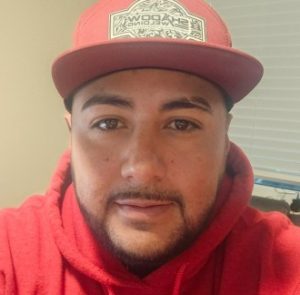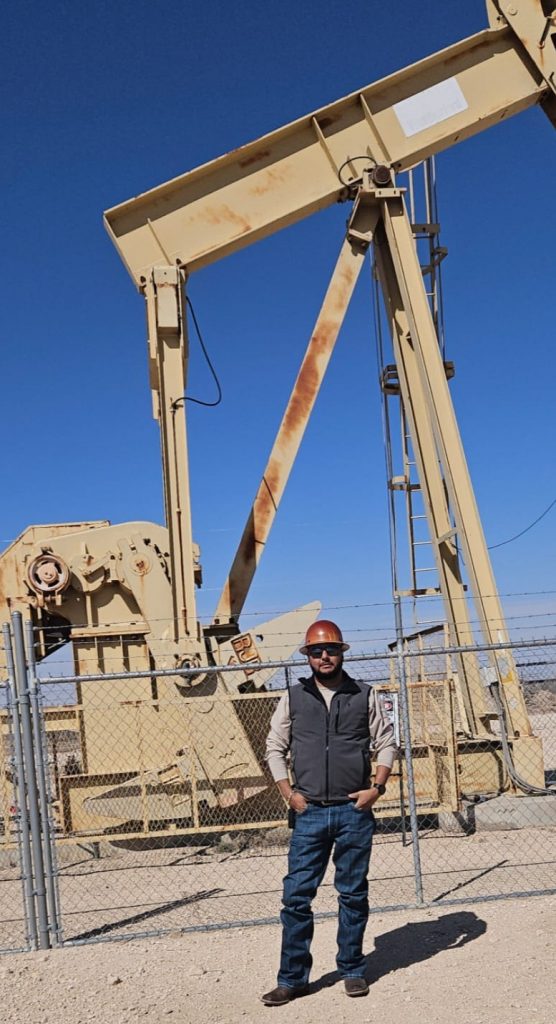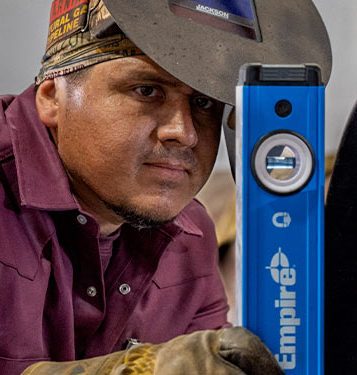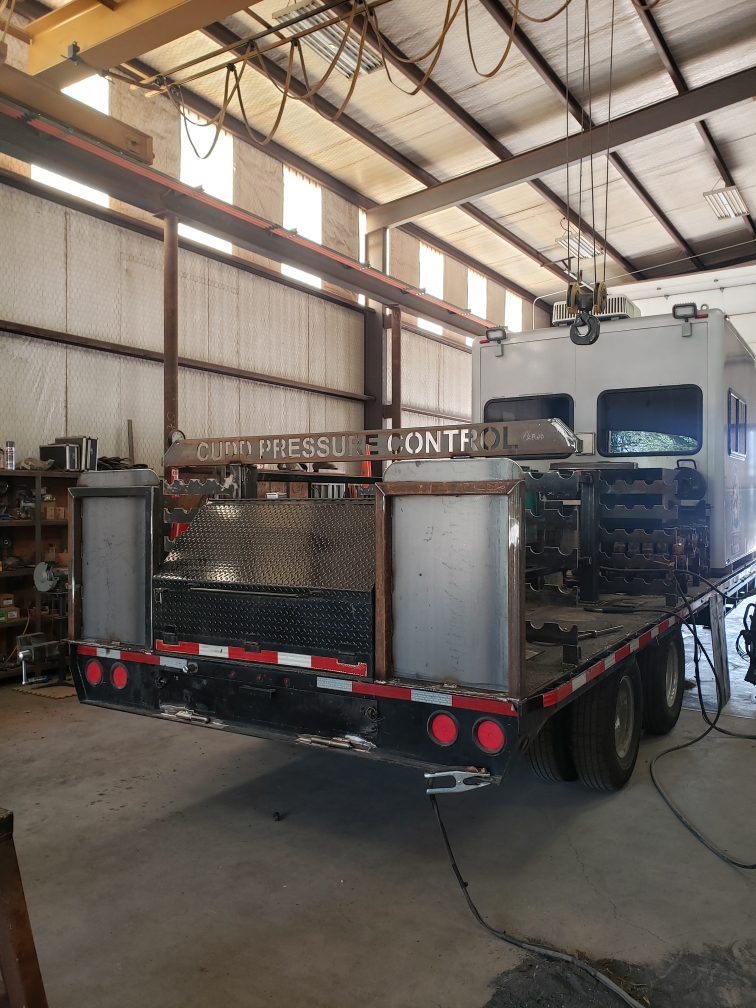As a whole, the oil patch is a tight-knit community, especially in the Permian Basin, where almost everyone is in the business one way or another. And the welding community seems to be particularly close-knit—or more precisely, welded together.
Here are stories of two entrepreneuring welders—Daniel Rodriguez of Shadow Welding and Jaron Tuttle of Tuttle’s Precision Arc LLC—who have parlayed their network of friends to build businesses by getting work, hiring, referring jobs, and feeling very much at home in how they contribute to the community.
Yes to Opportunity, Yes to Friends
When asked how, in about three years, he grew a company from six people to more than 60 doing welding, hydrotesting, trucking and more, Daniel Rodriguez makes an odd admission. “I kind of have a bad thing going. I tend to say yes to everything—I can’t say no.”
The “everything” specifically includes opportunities to add new business lines. Odessa-based Shadow Welding’s most recent addition, trucking, began with a simple question, and one of those “yes” answers from Rodriguez.
After a while of renting a truck to haul his own welding and hydrotesting equipment from site to site, Rodriguez realized he could save money in the long run by buying his own semi tractor-trailer rig. Seeing him arrive so equipped at a job site, a client asked, “Hey, do you happen to have a flatbed to move pipe?”
“I don’t have one, but I’ll find one by tomorrow!” Rodriguez answered. Now he’s looking to add more trucks and drivers to a growing fleet.
COVID and the Start of Shadow Welding
In the first part of 2021 COVID was still lurking, and Rodriguez’s wife was with child. Having worked as an oilfield welder for about 10 years, he then wanted to work solo to avoid germs and keep him and his expectant wife healthy.
“The guy I worked for, I told him, ‘I’ll do all the work you need, but I need to work alone,’” he recalled. Rodriguez noted that he was getting more work done than most who were working in groups. That got his boss’s attention, who asked, “Do you want to hire the welders on, and then we’ll pay you and you can pay them?”
That was Rodriguez’s first yes, in late 2021.
He started with about six welders, doing awnings and other small oilfield jobs. “From there we started building SWDs [saltwater disposal well facilities] and buildings, along with awnings and all,” he said. “Then it escalated into piping, tank batteries, and compressor stations.”
Was this kind of growth, reaching now 60 employees, in his mind at the beginning?
No. “I had no idea that’s what it would be when we started. I was thinking it would be about six or seven welders. I never expected to be doing roustabout work and rentals, and now trucking,” he said.
Welding still accounts for about half of Shadow’s workload, with roustabout work at 30 percent and hydrotesting around 10 percent. Trucking is just starting to gain traction this year.
A Lot of Help from My Friends
At this point the big question revolves around how a completely solo welder becomes a significant entrepreneur and manages a rapidly growing business. Rodriguez again relies on trusted oilfield friendships to make it happen.
Secretaries in the office and foremen/supervisors in the field are key parts of the daily structure. And for filing State of Texas paperwork and keeping up with insurance, you guessed it, more friends.
“I have quite a few friends that have their own businesses, and they walked me through it.” One of those is a lawyer who works at a firm “who dedicates his work to suing companies like mine,” in this case helping Rodriguez not get sued. A key piece of advice from that friend was, “No matter what happens, you always [must] have worker’s comp.”
Thence followed another very wise yes from Rodriguez.
He has also assembled a team of investors and partners to manage and help fund the ongoing expansion.
They Tend to Call Me Back
Rodriguez says most of his work involves subcontracting for other service companies, but that some of the larger independent operators are also on the list. “It’s people that I know, or used to weld for. They tend to call me back.” Knowing a lot of people “is an advantage, I guess, in the oil field.”
The Future for Shadow
For 2025, he expects to say yes to more hydrotesting and trucking opportunities, Shadow’s newest service lines. Hydraulic fracturing is a service that is also under consideration.
And the wonder of it all has not worn off. Every day he says he gets up and says, “Here’s another day, let’s see how long we can make this last.” He admits to a certain amount of concern about the unexpected, including oil field downturns. The irony is not lost on him that the last major downturn, COVID, actually contributed to Shadow’s start.
For Tuttle, it Started with Cousin and a Connection
Jaron Tuttle’s entry into welding came from a friendly wager with a female cousin who told him she was thinking about learning to weld so she could work for Boeing. “So I bet her that I would learn to weld,” he said.
Ironically, she never did so much as pick up a torch, but Tuttle has made a career off that bet. He started in Midland College’s welding program. Two weeks into the class, at a gun show, Tuttle ran into a church friend who owned a welding business. Upon telling the friend about his new training, the friend told him, “Hey, if you want a welding job, I can teach you.”
That invitation turned into the friend and business owner helping pay for Tuttle’s school, and to his first job in the trade.
Job Security
“It seems there’s never enough welders,” he said, adding, “The more people I know, the more it’s like a band passing work around because there’s just not enough welders.” He added that people are too busy to take all the work that’s offered.
He opened Tuttles Precision Arc in April of 2018, renting space from the friend. He chose the name because “I enjoy the idea of precision. I like what that name stands for.” He began by doing welding repairs on coiled tubing, subcontracted through his friend’s company. “It was 24/7 stuff—it’s a really high demand job,” he said.
The number of coiled tubing welders in the field can probably be counted on the fingers of two hands. Tuttle considers his ability to do this as both a blessing and a curse—a blessing because he is among only a chosen few—a curse, for pretty much the same reason, with the demand being non stop.
He entered that field as a challenge. “I personally enjoy learning new things and pushing myself to new limits,” he said. But because the calls come at all hours, it began to wear on him.
Here’s how that happens. If, in the process of working on a well, the tubing would break, “I would go in and patch it, weld it back together so they could pull out of the hole. We were putting connectors on so they could run it down hole.” Every minute required to wait for a welder to arrive and to do the work can cost a producer thousands of dollars.
Recoiling from Tubing, on to VRUs
After eight years of spotty sleep, in late 2024 Tuttle decided to pivot to fabrication in a shop, some of which is outside the oil patch. He is also starting to repair vapor recovery units (VRUs), which are gaining popularity due to increased regulations.
While he has mostly operated solo, Tuttle is now looking to hire some additional welders in order to expand the VRU repair business. He says that more companies are realizing the value of VRUs, that they usually more than pay for themselves by capturing formerly lost natural gas to be put into the sales pipeline. He expects this trend to make VRU repair a growth market for welders.
Should there be another downturn, he pointed out that welding demand stretches beyond the oil patch. Tuttle is also doing residential work—which, although “you can’t charge people oil field prices” for it—still pays the bills when things get slow otherwise.
Paul Wiseman is a longtime oil and gas writer.















